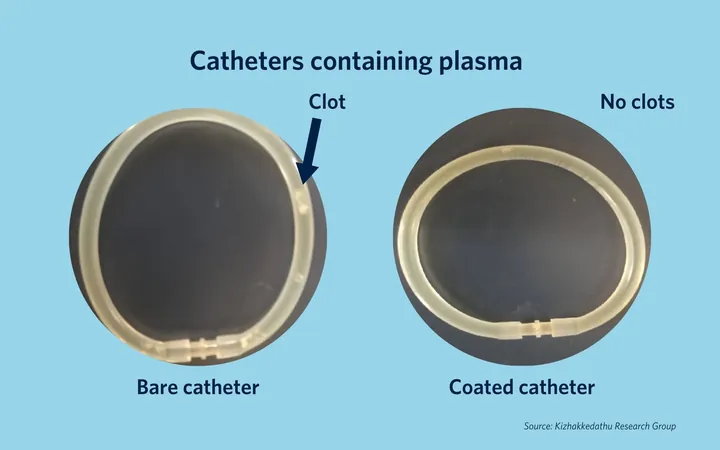
Groundbreaking Study Links Air Pollution to Increased Autism Risk in Children
2024-11-12
Author: Nur
Introduction
In a shocking new study, researchers have unveiled a critical connection between air pollution and the risk of children developing autism spectrum disorder (ASD). This revelation highlights the significant impact that a pregnant woman's exposure to common air pollutants can have on her unborn child's brain during vital developmental stages.
Findings and Implications
Professor Haitham Amal, the senior author of the study published in Brain Medicine, elaborates on the findings: “Different kinds of neurological disorders, including autism spectrum disorder, can be associated with these pollutants.” He stresses the importance of timing, noting that exposure during prenatal development carries a heightened risk.
The research identifies ultra-fine pollutants, particularly ‘fine particulate matter’ and nitrogen oxides (NO), as especially harmful during infancy. While some of these pollutants are naturally present in the atmosphere, they predominantly originate from transportation and fossil fuel combustion, raising alarms about urban air quality.
Genetic and Environmental Interaction
Notably, the study suggests that individuals with a genetic predisposition to autism are at an even greater disadvantage. With approximately 80% of autism cases believed to have a hereditary component, this dual influence of genetic and environmental factors could reshape our understanding of ASD. Amal emphasizes, "This interaction between genetic and environmental factors opens new avenues for understanding the complex causes of ASD."
Health Concerns and Recommendations
Concerningly, the pollutants in question may cross the placenta, potentially interfering with the crucial processes of brain development. Researchers have proposed several mechanisms through which these pollutants can disrupt bodily functions, including the transmission of chemical signals between nerves and interactions with the hormonal system.
Currently, autism spectrum disorder affects about 1-1.5% of the global population, but the scientific community continues to grapple with the specific causes. While some research points to genetic influences, there is a growing consensus that environmental factors, such as air pollution, could be a significant contributor to the condition.
Conclusion and Call to Action
In light of these findings, researchers are urging health professionals to take proactive measures to protect pregnant women living in high-pollution areas, emphasizing the need for public health policies that address environmental risks.
If you're a parent or planning to become one, the implications of this study could be crucial for your family's health. Stay tuned for more updates as this story develops and remember, your environment matters more than you think!



 Brasil (PT)
Brasil (PT)
 Canada (EN)
Canada (EN)
 Chile (ES)
Chile (ES)
 España (ES)
España (ES)
 France (FR)
France (FR)
 Hong Kong (EN)
Hong Kong (EN)
 Italia (IT)
Italia (IT)
 日本 (JA)
日本 (JA)
 Magyarország (HU)
Magyarország (HU)
 Norge (NO)
Norge (NO)
 Polska (PL)
Polska (PL)
 Schweiz (DE)
Schweiz (DE)
 Singapore (EN)
Singapore (EN)
 Sverige (SV)
Sverige (SV)
 Suomi (FI)
Suomi (FI)
 Türkiye (TR)
Türkiye (TR)